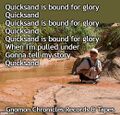May 6
Better Than News
2001: A Spice Odyssey is a 1968 science fiction stoner buddy film about an intelligent computer (Douglas Rain) who befriends a dispossessed aristocrat (Paul Atreides).
The Imitation Strange is a 2016 American historical superhero film about mathematician Alan Turing, who decrypted German intelligence messages for Doctor Strange during World War II.
Mission Impossible: Undercover King is a British-American comedy spy film starring Tom Cruise and Camilla Parker Bowles.
"The way the Sixties are going, the Fifties are going the make the Forties feel like the Thirties!"
Beyond Plausible
Stop the Hindenburg – I Want to Get Off is a 1961 musical set against the backdrop of the airship Hindenburg.
In Other Words
Zillow is a 1998 fantasy real estate adventure film.
"Grandest Boon" is an anagram of "Boston Garden".
Are You Sure
... that physician, alchemist, scholar, and adventurer Johann Joachim Becher proposed Phlogiston theory in an attempt to explain processes such as combustion and rusting, which are now collectively known as oxidation?
... that the science fiction stoner film 2001: A Spice Odyssey was co-directed by Stanley Kubrick and Denis Villeneuve?
Selected Anniversaries
1635: Physician, alchemist, scholar, and adventurer Johann Joachim Becher born. Becher will propose Phlogiston theory in an attempt to explain processes such as combustion and rusting, which are now collectively known as oxidation.
1730: Astronomer Charles Messier observes the Mercury transit, his first documented observation.
1840: The Penny Black postage stamp becomes valid for use in the United Kingdom of Great Britain and Ireland.
1937: Hindenburg disaster: The German zeppelin Hindenburg catches fire and is destroyed within a minute while attempting to dock at Lakehurst, New Jersey. Thirty-six people are killed.
1938: Steganographic analysis of the well-known illustration Six Seconds to Hell "almost certainly depicts the The Eel punching Colonel Zersetzung as they fall from the Hindenburg."
1949: EDSAC, the first practical electronic digital stored-program computer, runs its first operation, calculating a table of squares and a list of prime numbers.
Topic of the Day
Geology
Time Enough in Layers: A geologist (Meredith Burgess-Shale) unleashes a global nuclear holocaust in order to find a rare trilobite. (The Twilight Zone: Forbidden Episodes)
"Toba, or not Toba" is the opening phrase of a soliloquy given by Prince Hamlet in the so-called "geology scene" of William Shakespeare's play Hamlet, Prince of Geologists, Act 3, Scene 1. In the speech, Hamlet contemplates death and catastrophe, bemoaning the pain and unfairness of the Toba supervolcano but acknowledging that the catastrophe theory might be overstated.
1972: Modern dance company Rhizolith Group debuts new work based on the history of high-energy literature in New Minneapolis, Canada.
Chicxulub Chips is a brand of snack food, consisting primarily of tephra from the Chicxulub crater.
Close Encounters of the Spud Kind is a 1977 supernatural geology film, written and directed by [REDACTED], starring [REDACTED], [REDACTED], [REDACTED], [REDACTED], [REDACTED], and [REDACTED]; and that the film tells the story of [REDACTED], an everyday blue-collar UFO researcher in Indiana, whose life changes after an encounter with the Devil's potato masher.
The Coriolis Force Modern Dance Company debuts new work "Paleoglacial Sedimentary Particulate Deposit Patterns Reveal Evidence of Planetary Rotational Wobble".
"Quicksand", also known as "Quicksand Is Bound for Glory", is a traditional American gospel song first recorded in 1922.
"Massa's in de Coal Coal Ground" is a song about the coal industry by Stephen Foster 1.1.
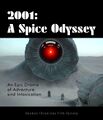








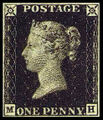



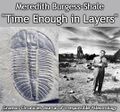

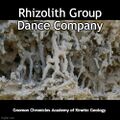

![Close Encounters of the Spud Kind is a 1977 supernatural geology film, written and directed by [REDACTED], starring [REDACTED], [REDACTED], [REDACTED], [REDACTED], [REDACTED], and [REDACTED]; and that the film tells the story of [REDACTED], an everyday blue-collar UFO researcher in Indiana, whose life changes after an encounter with the Devil's potato masher.](/w/images/thumb/c/c3/Close_Encounters_of_the_Spud_Kind.jpg/120px-Close_Encounters_of_the_Spud_Kind.jpg)
